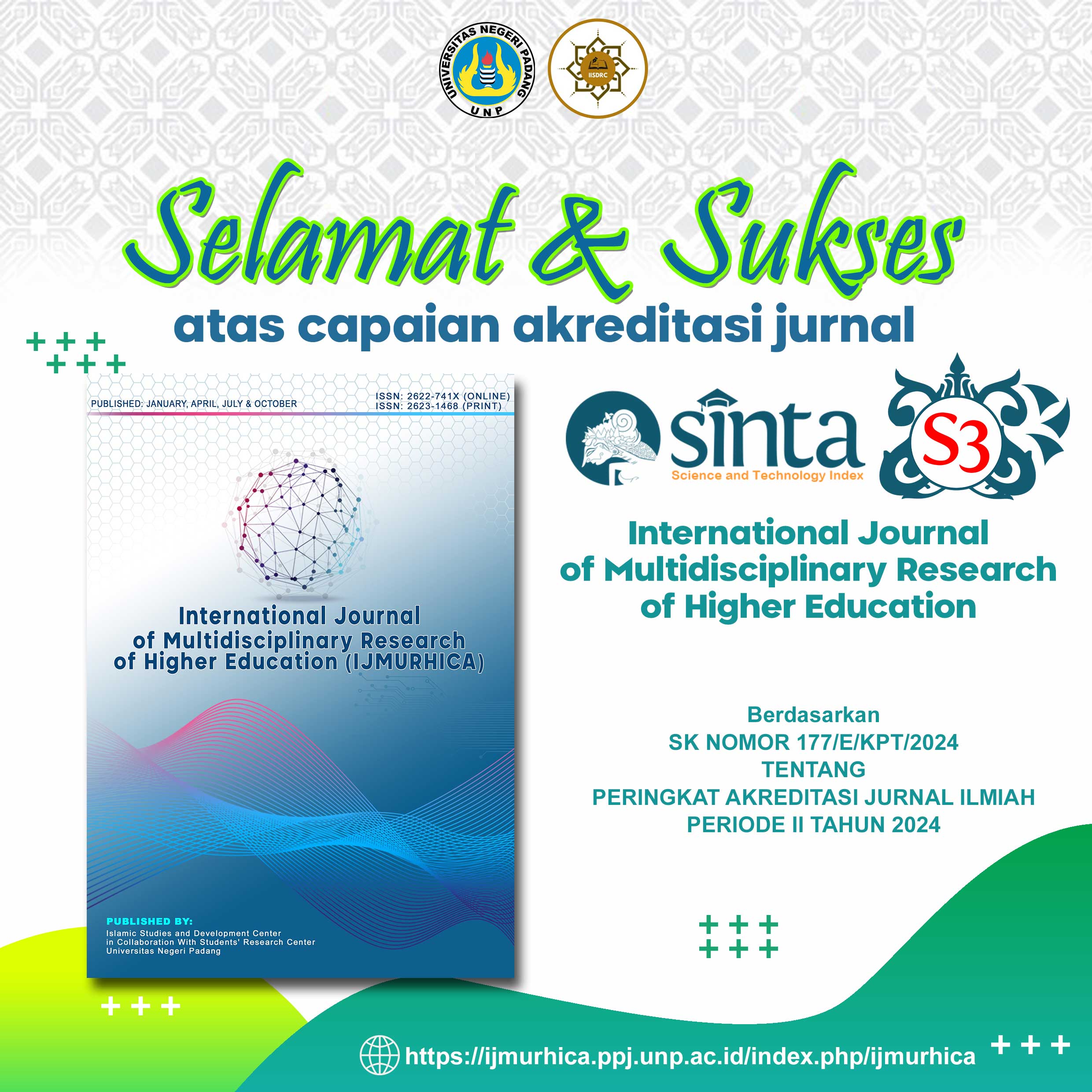RADEC Model: A Solution to Train Students' Collaborative Skills in Learning Islamic Education
DOI:
https://doi.org/10.24036/ijmurhica.v8i3.342Keywords:
RADEC model, Islamic religius education, skills collaborationAbstract
Study this aims to analyze the influence of the RADEC learning model on skills collaboration among students in the Islamic Religious Education lecture. The research method used is quantitative with a pre-experimental design one-group pretest-posttest type. A subject study involving eight selected students used a total sampling technique. Data was collected through test skills collaboration before and after the intervention, as well as analyzed using the normality test, paired t-test, and N-Gain test. The results of the study show significant improvement in skills collaboration among students. Paired t-test produces p value = 0.005, which indicates an important difference between pretest and posttest scores. N-Gain analysis shows an average increase of 73.93%, suggesting the effectiveness of the RADEC model in increasing skills collaboration. The RADEC stages, which involve activity reading, answering, discussing, explaining, and creating work, have proven to push work equality, communication, and responsibility to answer collectively among students. Research this confirms that the RADEC learning model is effective in developing skills for collaboration among students in the eyes of Islamic Religious Education lectures. Findings This contribution is important for the development of learning strategies relevant to innovative with need skills 21st century, especially in the context of Islamic Religious Education.
Downloads
Downloads
Published
How to Cite
Issue
Section
License
Copyright (c) 2025 Anggi Afrina Rambe, Edi Suresman, Mokh. Iman Firmansyah

This work is licensed under a Creative Commons Attribution-ShareAlike 4.0 International License.






